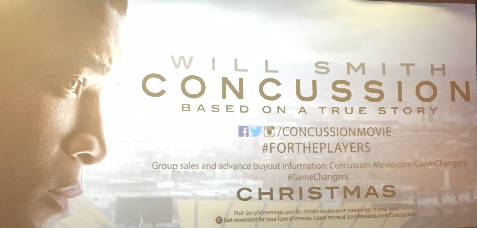More than 4,500 former athletes, some suffering from dementia, Alzheimer’s, or depression, accused the NFL of concealing the long-term dangers of concussions and rushing injured players back onto the field while profiting from the kind of bone-jarring hits that where often glorified in slow-motion replays. The NFL denied any wrongdoing and insisted that safety was always first and foremost. After two years, the NFL agreed to pay $765 million to settle lawsuits although the settlement does not include an admission from the NFL that it hid information from players about head injuries.
The league has adopted numerous safety related rules to over the last several years to promote player health and safety. “We have incredible progress that has been made, not only in rule changes, but also in what we saw today with materials and protection that will prevent these injuries from happening,” said NFL commissioner Roger Goodell. “From protocols that we implemented, research we are doing, coaching changes we have had, in taking certain techniques out of the game. What you are seeing is an incredible amount of progress and real impact.”

Despite these changes, the release of the film “Concussion,” which opened Christmas Day, raises the question – Is it enough? “Concussion” is based on the true story of neurologist Dr. Bennet Omalu (played by Will Smith) who discovered CTE (chronic traumatic encephalopathy) in football players, and his uphill battle in bringing the information to the public despite cover up efforts by the NFL. Viewers are taken through the events of Omalu’s first case, Pittsburgh Steeler Mike Webster (aka Iron Mike) who died at 50 after battling dementia. Wondering why an athlete like Iron Mike would experience such a rapid deterioration, Omalu ordered testing of Webster’s brain, at his own expense. What he discovered was shocking. Webster’s brain was ravaged, a result of repeated blows (Omalu estimates over 70,000 hits) over his long career with the NFL. The case was the first of many diagnoses of CTE in deceased ex-NFLers which has left a cloud over the sport.
In the last several years, there has also been increased attention given to the issue of concussions sustained by high school and college players. According to the Center for Disease Control and Prevention, one-in-ten high school football players will suffer a concussion in a given season, and up to 50% of them will go undiagnosed. Concussions can be difficult to detect; there are no outward signs, and symptoms are not always immediate after the injury. It is not uncommon for a player to take a blow to the head and experience no symptoms. If a concussion goes undiagnosed, it may increase the risk of re-injury and, ultimately, lead to chronic changes in the brain. Athletes who return to their sport before they fully recover from a head injury are at a greater risk because the prior injury leaves the brain vulnerable to repeated injury, concussions, increased risk for memory loss, cognitive problems, and chronic headaches.
What about youths playing the game? According to Omahu, concussion-related brain damage from football is not only a threat to professionals, it is a threat to all players. “The human brain becomes fully developed at about 18 to 25 years old” said Omahu. “We should at least wait for our children to grow up, be provided with the information and education on the risk of play, and let them make their own decisions. No adult, not a parent or a coach, should be allowed to make this potentially life-altering decision for a child.” On the contrary, Rosemarie Scolaro Moser, Director of New Jersey’s Sports Concussion Center, said parents don’t need to pull their kids from youth football programs. She said that youth sports are not an extension of the pros who receive thousands of head blows. But, what is important is that we continue to take every step to keep our kids and their developing brains as safe as possible by making sure helmets are safe and appropriate for head size, practices include exercises to strengthen neck muscles, and most importantly, making sure that coaches, trainers, and parents recognize the signs and symptoms of a traumatic brain injury and are trained to act appropriately and quickly when a concussion occurs.
“Concussion” will not end the game of football for the pros or our local communities, nor is that the intent. The purpose of the film is to bring safety issues of the game to light and show that more still needs to be done to keep players safe. The more attention on this situation and what might be done to improve upon it, the better. If and how “Concussion” will affect more change is yet to be seen.
Mark Bello is the CEO and General Counsel of Lawsuit Financial Corporation, a pro-justice lawsuit funding company.





